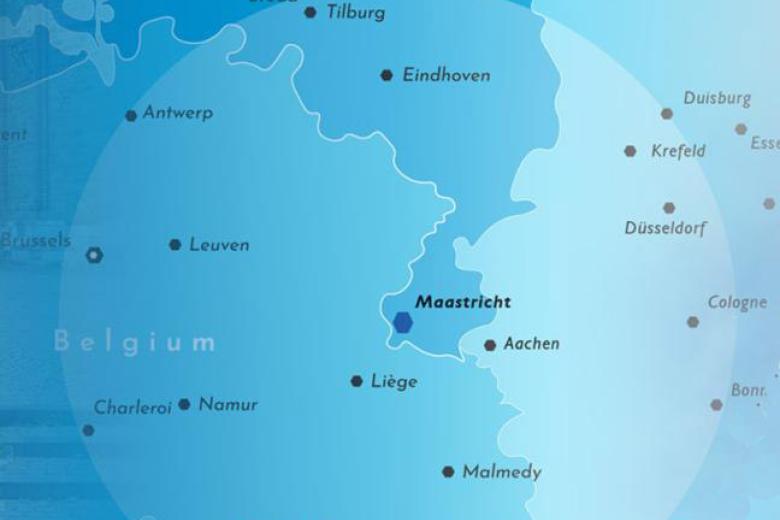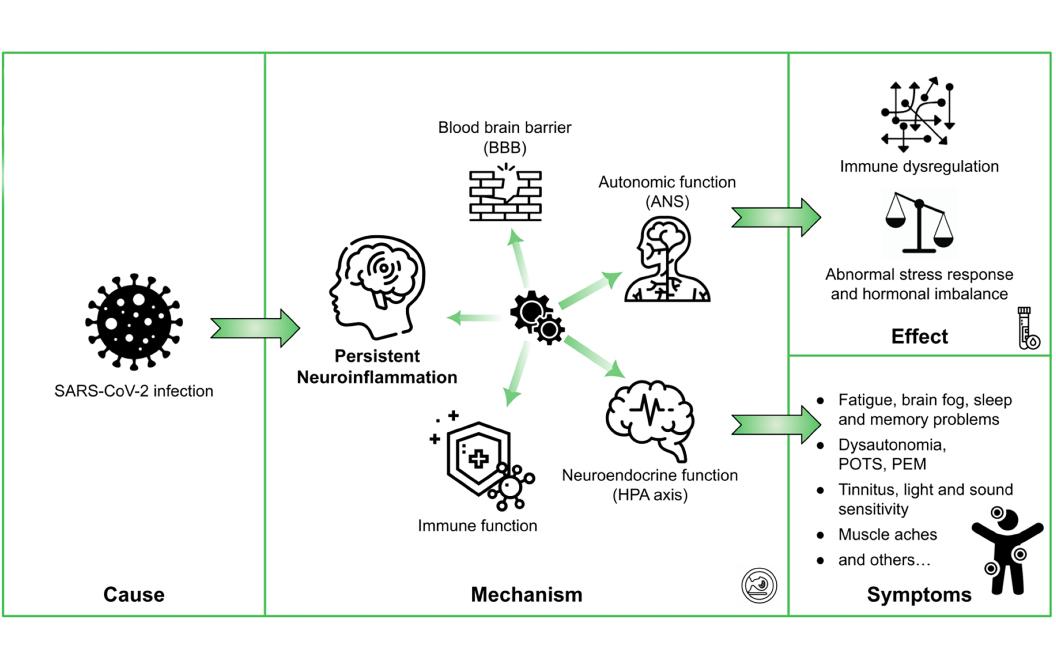Post-Covid research: The quest for a common origin
Could persistent inflammation in the brain be a common cause behind the symptoms experienced by many post-Covid patients? Under the coordination of Maastricht University, scientists from across the Netherlands are joining forces to uncover the underlying causes of symptoms such as fatigue, post-exertional malaise, and concentration issues.
Inflammation
Why do people with post-Covid experience symptoms that seem to suggest a neurological origin? There is some evidence indicating brain involvement; researchers have observed inflammatory processes in both brain tissue and blood. Therefore, an interdisciplinary team of researchers from Maastricht University, Utrecht UMC, Radboud UMC, Erasmus MC, and Amsterdam UMC is given the chance to further investigate the matter. They received a grant of nearly 800 thousand euros from ZonMw, and can now further study the role of persistent brain inflammation and disruption of the brain’s control over immune, autonomic, and hormonal functions.
“Our approach is designed to integrate extensive biological measurements on different levels, spanning from molecular profiling of the blood to brain imaging, within the same individual. Thereby, we pursue a comprehensive understanding of the interconnected biological systems affected by post-Covid,” explains project leader Martina Summer-Kutmon from the Maastricht Centre for Systems Biology.
Systems Biology
The team is building their research on existing data from three ongoing clinical studies and will do extensive follow-up measurements in a subgroup of patients. “Colleagues in university hospitals in Amsterdam and Utrecht are performing advanced brain scans, while the team at Radboud University Medical Centre will examine the immune system, and the Erasmus Medical Centre will investigate immune cells and viral persistence. Here in Maastricht, we are bringing all the data together in a post-Covid disease map,” says Summer-Kutmon.
This research, titled “The quest for a common origin: how neuroinflammation in post-Covid dysregulates brain function,” was developed in close consultation with patient representatives who will be involved in the research process. Through the collaboration with the Post-Covid Network Nederland (PCNN), the team will connect with a broader community of patients, researchers, and clinicians to enhance the insights and impact of the study.
The whole team is eager to start our work on this project to better understand and address the challenges faced by many post-Covid patients.
Also read
-
Companies unlock Maastricht University’s hidden talent
@Work students serve as a bridge between academia and industry, helping companies recognise the university’s strengths. “We’re a hidden gem that’s gradually being discovered, as more and more people learn that we are one of the largest academic data science and AI programmes in the Netherlands
-
If a machine can write a flawless essay, what’s left for the writer?
UCM graduate Robin van Wasen traces how writing has shaped her learning, identity, and voice, and asks whether AI, despite its fluency, can ever replace the intent, authenticity, and connection that define human writing.
-
DigiMach places Meuse-Rhine Euroregion at the heart of industrial digitalisation
DigiMach (Digital Machining) is a new cross-border project uniting Belgium, Germany, and the Netherlands around a common goal: accelerating the digitalisation of the machining industry in the Meuse-Rhine Euroregion.
